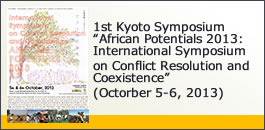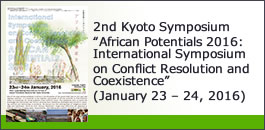Date: January 26, 2013
Venue: Inamori Foundation Memorial Bldg. (Inamori Center), Large Conference Room, Kyoto University
Program
15:00~15:15 Itaru Ohta (Kyoto University)
Aims of the Workshop
15:15~16:15 Jin Matsumoto (Journalist, Adviser to Asahi Simbun)
Does Africa Have Conflict Resolving Ability?
16:15~16:35 Break
16:35~17:35 Yntiso D. Gebre (Addis Ababa University)
Legal Pluralism and Customary Courts in Ethiopia
17:35~18:00 General Discussion
Abstract
Itaru Ohta (Kyoto University)
The Aims of the Workshop
Contemporary African Societies face the task of how to prevent conflict and violence, how to reconstruct and rejuvenate the social order destroyed and exhausted by conflicts and how citizens can reconcile after the conflict. In this conference, we discuss how the knowledge or institution, which people in Africa created, accumulated, and practiced, can be applied to those pragmatic issues.
Jin Matsumoto (Journalist, Adviser to Asahi Simbun)
Does Africa Have Conflict Resolving Ability?
□ The answer is “Yes, she does.”
□ E.g. Somaliland (population of 2.8million)
- The civil war broke out in the middle of 1980s. Barre regime collapsed in 1991.
- Armed conflicts with in Somaliland continued. There were about 20 clans and 50 thousands AK-47 .
- Clan leaders in Borama called a peace conference.
- 82 elders called out to give up guns. Militias were absorbed into police and army.
- UNDP took charge of disarmament.
- Almost all guns held by citizens were withdrawn by year 2002.
- Markets full of female. Reliable public peace.
- Though, Somaliland is “mono-ethnic country”: citizens shares common interests.
□ Multiethnic countries are put in much serious situations: Republic Democratic of Cong, Northern Uganda, Chad, Zimbabwe
- Economic collapse – food shortage – dependence on one’s own ethnicity – ethnic conflicts prevail.
- Patrons receive bribe to support clients – to the clash of national economy.
□ Is it possible to resolve conflict in multiethnic society? – “Yes, if they find other values other than depending on ethnicity”
- No prominent ethnic conflicts in the era of independence wars in Africa.
- A society that people can live without depending on ethnicity. A society that people can live by working hard will replace ethnicity-prevailing societies.
□ Do not expect governments because they are always “benefit inducing”
- Needs of incentive based on “when you work you can eat,” “when you work hard, there are more fortune.”
- Much incentive in ORAP in Zimbabwe.
- South Africa’s investment in Mozambique and Tanzania. Improvement in employment rates and labor quality.
- My experiment. Introducing economic rationality by private bodies. OSR.
□ Difficult but worth trying.
Yntiso D. Gebre (Addis Ababa University)
Legal Pluralism and Customary Courts in Ethiopia
In Ethiopia, plural legal systems exist: the formal (regular) court and the informal (customary) court. With the exception of family matters that may be handled outside of the regular court and disputes between Muslims that may be taken to the Sharia court, conflicts resolved through other traditional mechanisms lack legal recognition. However, research reveals that most people in rural communities and many people in urban areas prefer the customary courts over the formal law for all forms of disputes.
In the past, the customary dispute resolutions mechanisms were considered backward practices that need to be replaced by the modern codified law. Today, there exists a growing recognition of the relevance of traditional conflict resolutions. In recent years, it became evident that sometimes government authorities encourage customary courts to address conflicts that could not be resolved through the state machinery.
Customary dispute resolution institutions are not without blemishes, however. Some are criticized for violating human rights and for excluding women and the youth from participation in hearings. This places traditional courts at odds with the international instruments that Ethiopia has signed. There are also instances, in some localities, where customary courts handle hard crimes such as homicide and even pass death sentences at the village court level. This is another source of confrontation between the formal and informal systems.
In this presentation, I will explain the reasons why the traditional courts remain relevant and in some cases even dominant; the manifestations of the recent seemingly favorable trend and its implications; and the challenges associated with the use of customary courts.
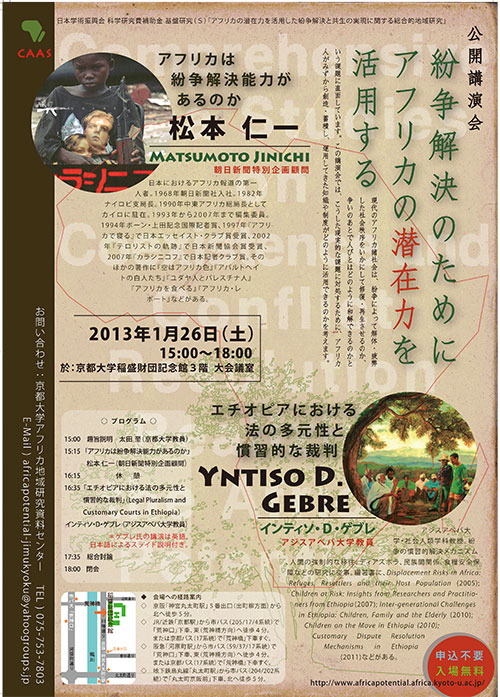

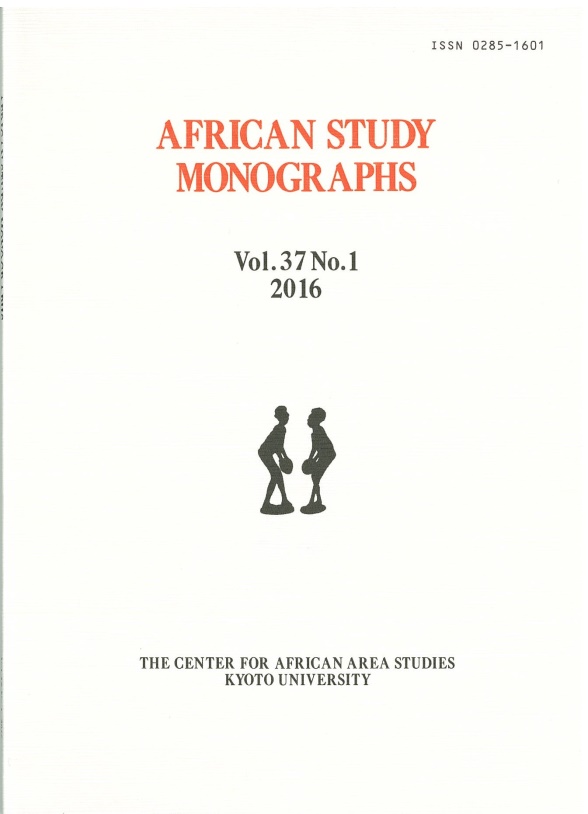
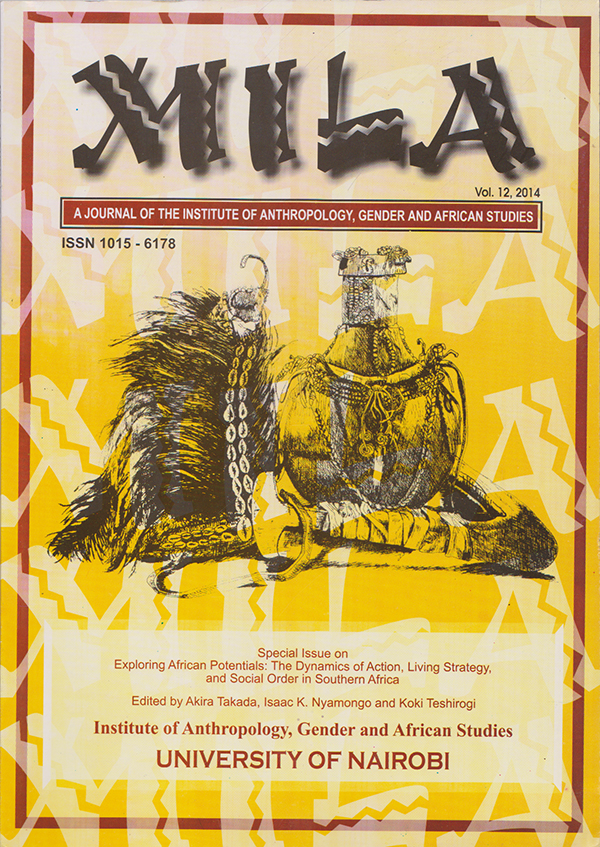 Exploring African Potentials, Mila Special Issue
Exploring African Potentials, Mila Special Issue